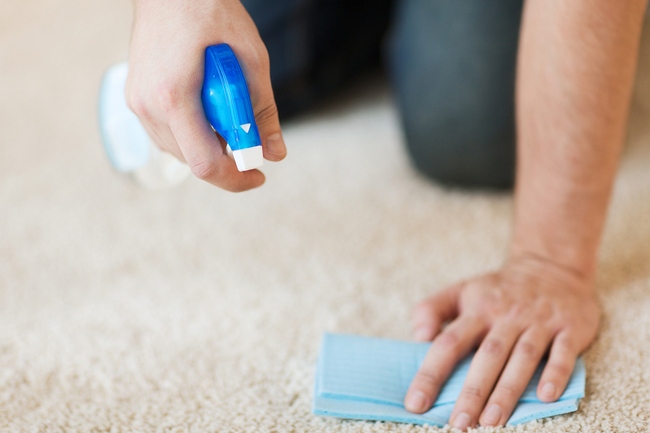- Make It Yourself Lavender Heart-Shaped Bath Bombs!
- 20 Things You Never Knew About “Down There”
- 12 Best Foods For Those Suffering From Arthritis Pain
- 12 Personal Hygiene Mistakes Almost Everyone Makes (Mom Never Told You About #4!)
- 15 Medicinal Plants And Herbs From The Cherokee People
- 12 Mind-Blowing Benefits Of Drinking Coconut Water During Pregnancy
- 12 Outstanding Winter Foods That Won’t Fatten You Up Like A Christmas Turkey
Top 8 Things that Increase Your Risk of Breast Cancer

Photo credit: bigstock
Although it is very difficult to single out any particular group as being the worst offender, fire retardants might be the worst but only because they found in every home in America. Fire retardants can be found in everything, even the very mattress you sleep on every night. They are in your sofa, your chair, the carpet in your home, almost everything made of fabric has flame retardants in the material.
It’s been estimated that 90 percent of all people in America have these flame retardant chemicals in their bodies and numerous studies show they are connected to human health risks including birth defects, lower IQ scores, infertility, behavior problems in children, as well as several types of cancer, including testicular and breast cancer.
DDT and PCB’s, well-known carcinogens, are in the same class of chemical that flame retardants belong to. These types of chemicals also react with other toxins, should they burn, to produce cancer causing dioxins.
It’s amazing that another type of flame retardant, that was called TDCPP, was removed from children’s pajamas in the early 1970’s due to concerns that it might cause cancer, but it’s now added to sofas and cushions all over the US. Not OK for your children to sleep in, but OK for them to sit on. Your mattress is also made with flame retardant material. If you can afford to do so, ditch that toxic mattress and buy one that’s made of 100 percent wool or Kevlar, both of which are naturally flame retardant, no added toxins necessary!
Cosmetics may make us look and feel better ( Ok, even smell better), but many of the chemicals in your cosmetics are known carcinogens while others are known as hormone disruptors that can affect how estrogen works in your body. Estrogen can actually make hormone receptor positive breast cancer. These chemicals can encourage cancer cells to grow. Limit your exposure to these types of chemicals, such as triclosan, as much as possible.
Also be on the look- out for parabens in cosmetics and antiperspirants, as well as many sun screens. Many studies show that parabens have estrogenic activity in research involving human breast cancer cells. Research done in 2012 showed that they found one, or sometimes more than one, type of paraben esters in 99 percent of the 160 tissue samples that were taken from 40 mastectomies. This consistent presence of parabens in cancerous tissue suggests that parabens, whether they are in your cosmetics, lotions, or antiperspirants, might increase the risk of developing breast cancer.
Seek out organic items, whether it is clothing, bed linens, laundry soap, household cleaners, or cosmetics. Every little bit helps reduce your exposure to cancer causing toxins.
Sources:
Environ Health Perspect; DOI:10.1289/ehp.1307455
Chicago Tribune, Playing with Fire
Journal of Applied Toxicology January 12, 2012: 32(3); 219-232
Journal of the National Cancer Institute (2005) 97 (1): 1.
American Journal of Clinical Nutrition December 28, 2011
Clinical Cancer Research October 15, 2005 11; 7490
Anticancer Research March 2014: 34(3); 1163-1166
UC San Diego Health System Press Release March 6, 2014
American Live Wire March 7, 2014
UC San Diego Health System Press Release March 6, 2014
Anticancer Research February 2011: 31(2); 607-611
UC San Diego Health System Press Release March 6, 2014
U.S. News & World Report August 30, 2010
(By the way, if you’re enjoying this article, you may want to subscribe to the Naturalon’s free newsletter; get breaking news alerts on GMO’s, fluoride, superfoods, natural cures and more… You privacy is protected. Unsubscribe at any time.)
































